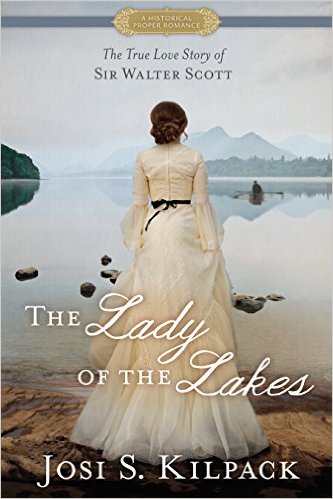 “THE LADY OF THE LAKES,” by Josi S. Kilpack, Shadow Mountain, Jan. 3, 2017, Softcover, $15.99 (young adult/adult)
“THE LADY OF THE LAKES,” by Josi S. Kilpack, Shadow Mountain, Jan. 3, 2017, Softcover, $15.99 (young adult/adult)
I’ve written about Shadow Mountain’s Historical Proper Romance books a couple of times. They’re pretty much a safe bet if you’re looking for a fast, clean read. Josi S. Kilpack’s “The Lady of the Lakes” falls into those categories, although it’s not without its flaws.
“The Lady of the Lakes” tells the story of Sir Walter Scott and the two women he loved — Mina and Charlotte.
Walter meets Mina when she is a young teenager and is immediately drawn to her. They come from different stations, but neither seems hampered by that, at least at first. The two correspond and meet whenever Mina’s family comes to town. Walter is convinced that Mina is his muse, and they are meant to be together.
Mina is flattered by all the attention, but as she nears marrying age, she begins to wonder if she can live without all the comforts she’s accustomed to. When Mina meets William Forbes, a handsome aristocrat, she comes to realize her heart belongs to him instead of Walter.
Devastated by Mina’s betrayal, Walter leaves Scotland for the comforts of England’s lake country. There, he meets Charlotte, a 26-year-old French woman who has made plans to live on her own.
Walter and Charlotte quickly become friends and plan to remain just that. But Walter can’t get Charlotte out of his head. Her sharp intellect and unassuming disposition make him begin to question whether Mina was his true love or a mere infatuation.
“The Lady of the Lakes” is told in third person but divided into Mina, Walter and Charlotte’s points of view. This, for the most part, works quite well. Kilpack does an excellent job of getting into each of her characters’ heads, making you want to know more about them.
My problem came halfway through the novel when Mina just disappears. It feels almost as if she dies. Perhaps this was the author’s intention. Mina is essentially dead to Walter after she gets engaged to Forbes. But going from three points of view to two almost makes “The Lady of the Lakes” feel like two separate novels.
And if I were going to choose one of those two novels, I’d definitely choose the second. This choice doesn’t come because the romance works out; it comes because the writing is much stronger. Early on, “The Lady of the Lakes” feels a little bit stiff. At times I felt as if Kilpack was reporting on Walter instead of becoming him. His language is stilted and I found myself rushing through some areas to move the story forward.
Kilpack redeems herself in the second half, where her prose flows freely and her characters become infinitely more interesting. Kilpack has obviously done her research and that’s a strength throughout.
